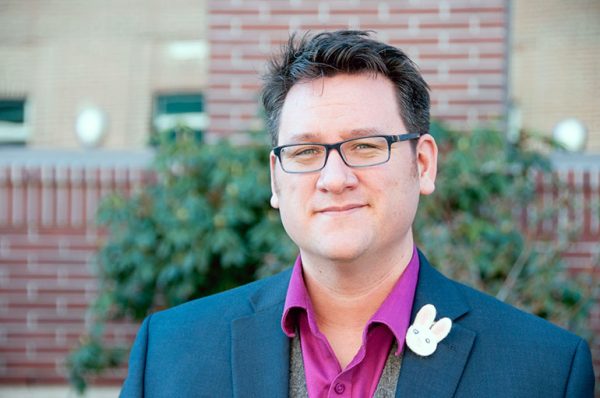Dr. Ben Tippett, Physics and Astronomy instructor at College of the Rockies, holds a master’s in physics and a PhD in Applied Mathematics. He is passionate about ensuring physics concepts are accessible to the general public and that the physics community becomes more diverse.
1. What sparked your passion for Physics and Astronomy?
As a kid, I really loved astronomy and the planets, and a favourite Saturday family outing was to visit TELUS World of Science – Edmonton. but I was drawn into Physics by my enthusiastic high school teachers; and the wonderful professors and instructors I met when I went to university.
The act of “doing” physics –thinking about experiments, doing calculations, and wondering about how it all fit together– is an activity I get a lot of pleasure from. It’s fun and mysterious and satisfying.
2. What do you love most about teaching these topics?
Teaching all these future scientists and engineers to reason and inquire is energizing and I’m so lucky to be able to pass onto them the topics that I find fascinating. It’s a real privilege to teach math and physics and astronomy at College of the Rockies.
3. You have an interesting side hobby. Can you tell us about The Titanium Physicists Podcast?
The Titanium Physicists podcast is a project I started around ten years ago with some of my physicist friends. Every physicist I know is an expert on a different topic; but we all believe that the basic ideas and discoveries can be understood if carefully explained using plain language and no math.
I choose two physicists who are experts in a topic like: laser emission, MRI machines, quantum computing, black holes, supernovas, or time machines. Then I find a normal person who seems interested in hearing us out, and the three of us try to explain the topic. There’s a lot of back-and-forth and questions, and it’s really fun.
4. Inclusivity in the physics community is important to you; why is that?
There was a time when only wealthy people had the opportunity to study physics and astronomy: University is expensive, and we only let wealthy white men in. But studying the stars and the universe really appeals to everyone.
Over the last hundred-ish years, we have seen that as a wider diversity of students are permitted in and supported, our understanding of the universe has really blossomed. I believe that it’s not a coincidence.
Our general sense of the history of science presents an overly simple and overly heroic story where a few rare geniuses revolutionize our understanding. Instead, it’s clear to me that geniuses are rather common and that our understanding inches forward gradually over decades through creativity, diversity, and very careful thought. Often enough, our understanding improves because the scientists involved possess a unique perspective which informs their work. A diversity of ethnic background, a diversity of gender, a diversity of class background, and a diversity of ability or neurotypicality: scientific progress depends on all of them.
The students who thrive most easily (which isn’t to say that a science degree is easy to earn) are the ones who are wealthy, cisgendered, able-bodied, white men who don’t need to additionally struggle with a culture of sexism or homophobia, or struggle to pay the bills while they study, or who can’t get their wheelchair into the lecture halls or laboratory. Thus, our academic culture has historically filtered these people out of the pool of graduates and out of the pool of people who get higher degrees. Which is why actively making a space for, and providing support for, students from a variety of backgrounds is so important to me.
We can’t afford to pretend that diversity is not crucial to the future of the sciences when one of the leading scientists and public advocates for science in our lifetime was a man in a wheelchair, almost completely paralyzed by ALS.
5. What can people expect at your December 21 talk?
Everyone has heard of black holes. As they’ve made the news over and over in the last decade, I feel more people are curious about them. The picture of a darkness in space which swallows everything it touches is something that really piques people’s curiosity.
Black holes are also something I had the privilege of studying in graduate school.
So at the inaugural Museia, I’ll introduce the history and some of the more intriguing details of our understanding: the way time slows down, the bending of light around it, the event horizon, and the singularities in their core. We’ll also talk about the more recent discoveries: detecting them using gravitational waves and being able to take their photo using telescopes the size of a planet. The talk will be given in plain language, and I promise there will be no math. Anyone interested in black holes should be able to understand it.
Dr. Tippett is the faculty lead for the COTR Museia and has worked in partnership with the Cranbrook Public Library to see the lecture series come to fruition. On December 21, his presentation, entitled Black Holes – the deepest darkness and the overpowering light, will be approximately one hour in length with an additional 30 minutes at the end for questions.
What is a Museia? It is a festival of honour of the Greek muses who inspire sciences, mathematics, literature, and arts.
Dr. Tippett’s lecture on Black Holes will be held at the Library’s Manual Training Centre on December 21 from 6:30 – 8:00 pm.
